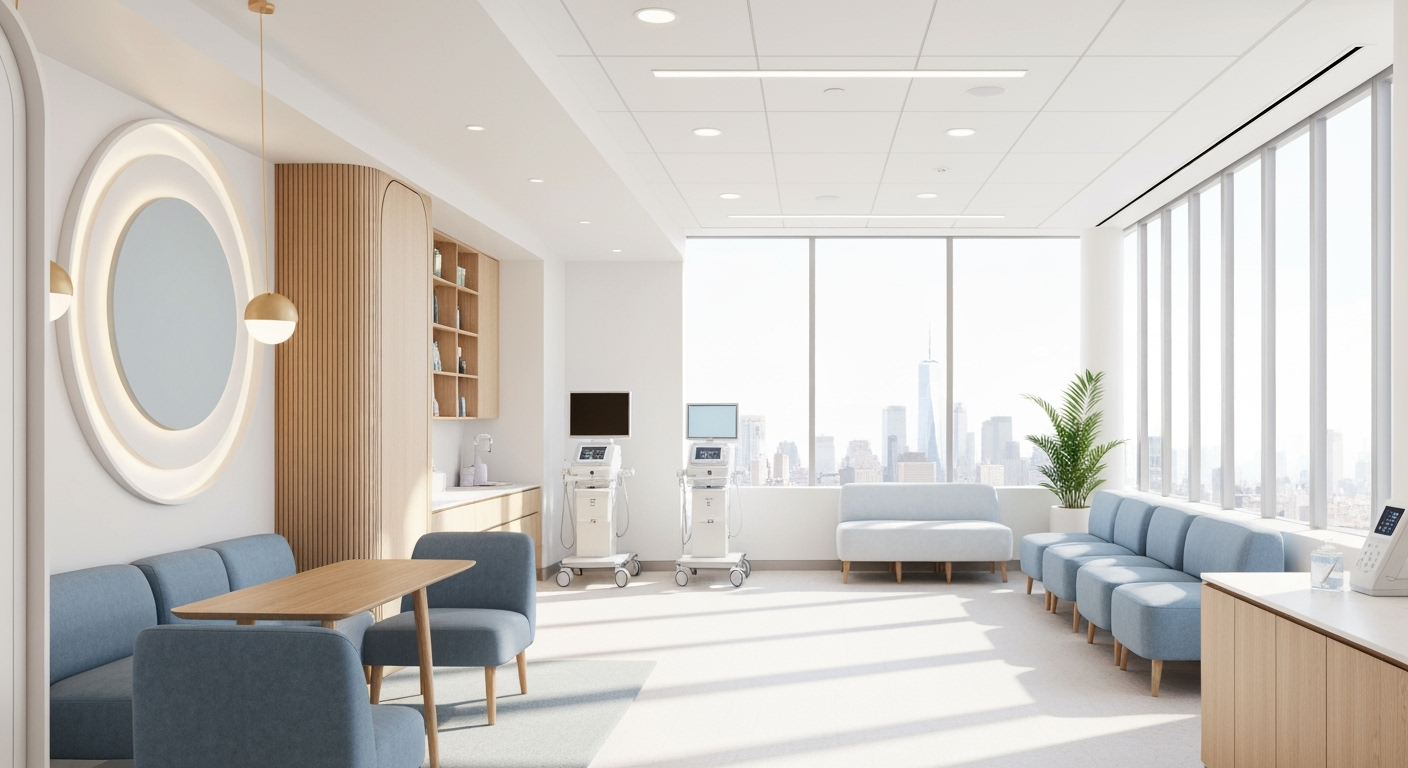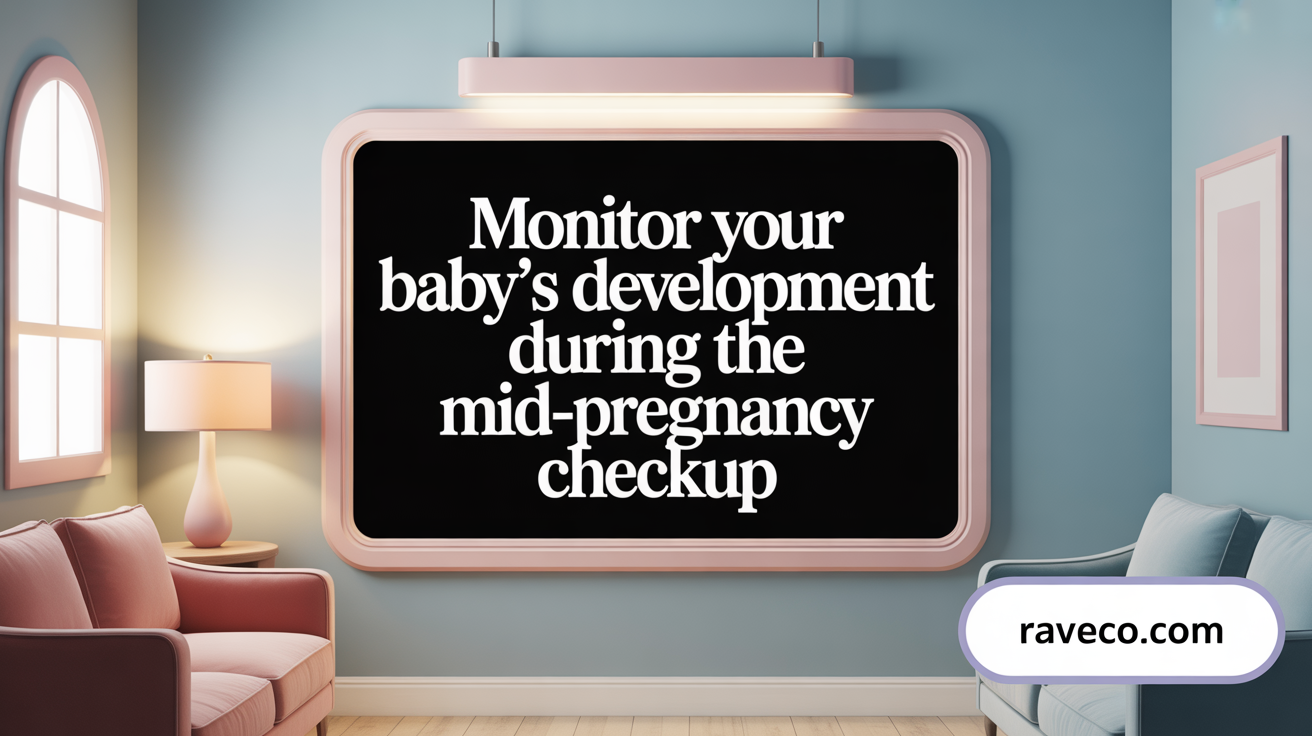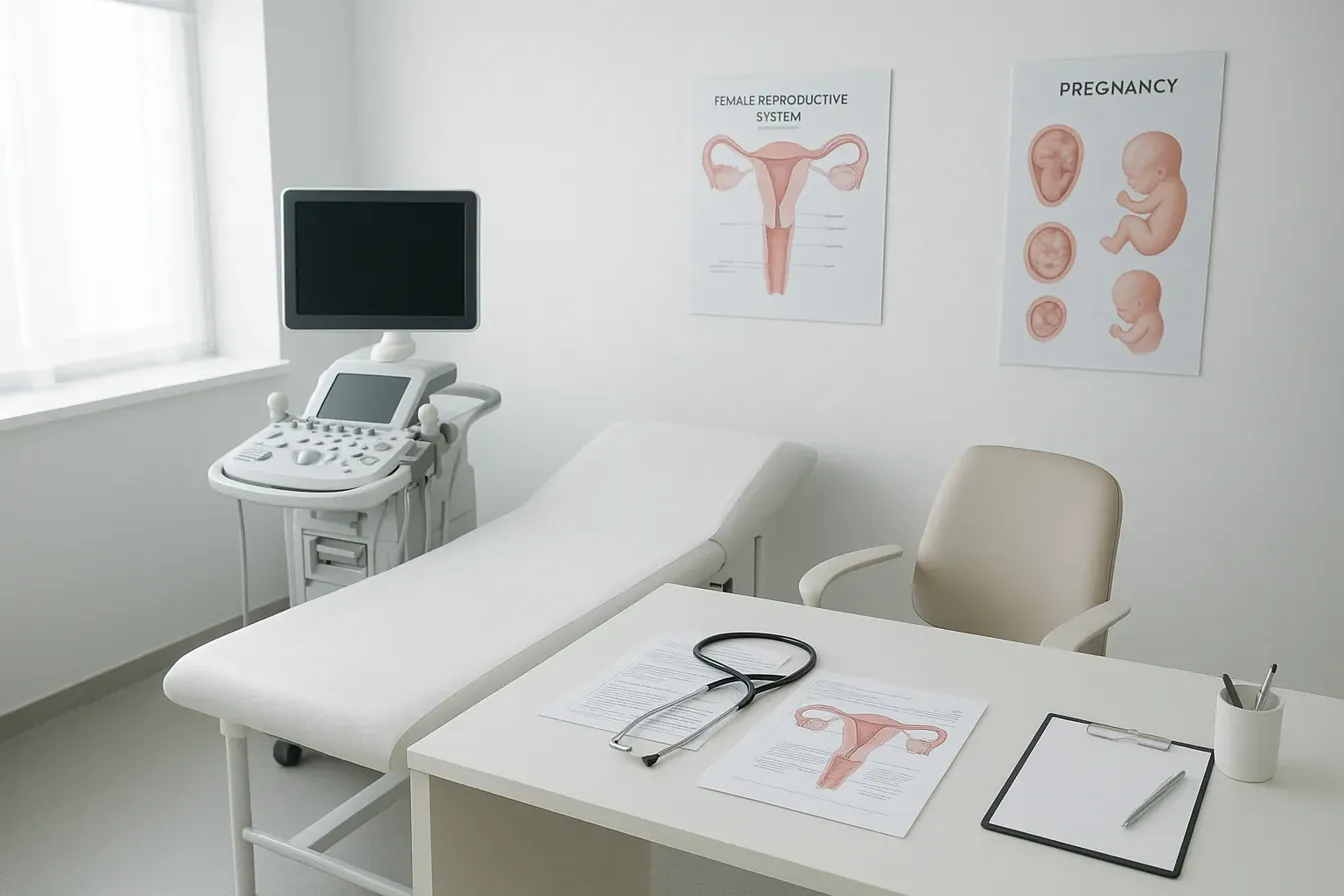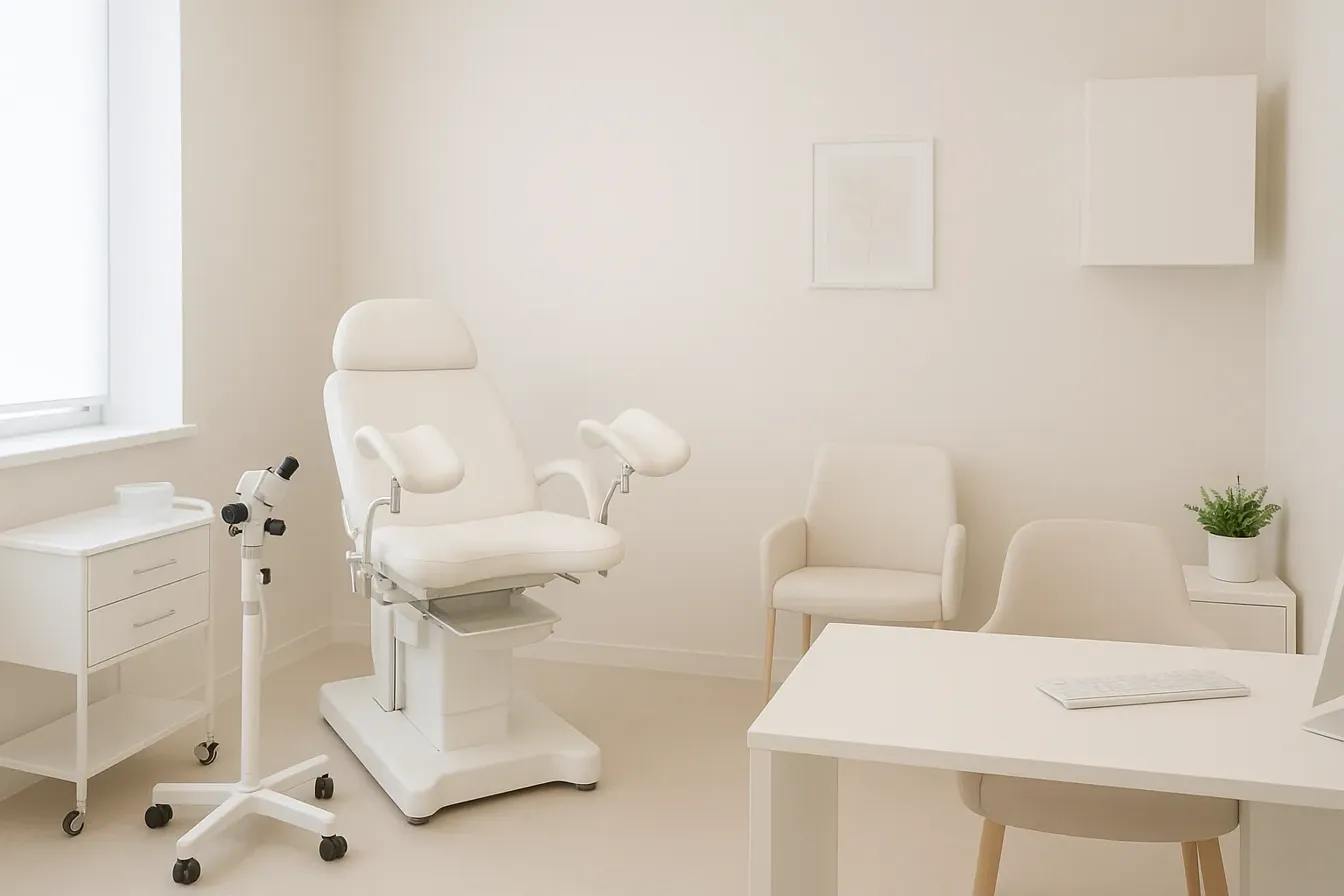Navigating Your Birth Control Choices: Tailoring Options to Fit Your Unique Lifestyle

Understanding Your Pregnancy Journey with NYC OB/GYNs
Pregnancy is an exciting and transformative time, filled with anticipation and important healthcare milestones. For expectant mothers in New York City, prenatal care is supported by a robust healthcare network, featuring nationally recognized obstetricians and state-of-the-art facilities. This guide will help you understand what to expect from your OB doctor throughout your pregnancy, from your initial prenatal appointment to specialized care for high-risk pregnancies. With detailed information about appointment schedules, tests, and personalized care approaches, you’ll be empowered to navigate your pregnancy confidently in NYC.
Your First OB/GYN Appointment: Laying the Foundation for a Healthy Pregnancy

When should I schedule my first prenatal visit and why is it important?
Your first OB/GYN appointment should be scheduled as soon as you confirm your pregnancy, ideally after a positive home pregnancy test. Early visits are crucial because they allow your healthcare provider to confirm the pregnancy, estimate the due date, and initiate vital health assessments.
What happens during the first OB/GYN appointment when pregnant?
During this initial visit, your healthcare provider will review your medical history, including past pregnancies, health conditions, and gynecological history. They will perform a physical exam, including a pelvic exam and Pap smear if needed. Blood tests will be ordered to check your blood type, screen for infections like rubella and hepatitis, and assess overall health. An ultrasound might be scheduled to confirm the pregnancy, estimate gestational age, and check for a fetal heartbeat. You will also discuss diet, prenatal vitamins, lifestyle modifications, and any concerns you have. This appointment sets a baseline for future pregnancy monitoring and provides a chance to ask questions.
Is it too late to have your first prenatal visit at 12 weeks?
While earlier visits between 8 and 10 weeks are ideal, having your first appointment at 12 weeks is still perfectly acceptable. It allows for critical assessments such as vital signs, blood tests, and an initial ultrasound to confirm fetal development and determine your due date. Starting care at 12 weeks ensures you’re on track for monitoring the pregnancy, although earlier visits can help detect issues sooner. If possible, schedule your appointment as soon as you learn of your pregnancy.
Do you get an ultrasound during your first OB appointment?
Ultrasound use during the initial visit varies by practice. Usually, an ultrasound is performed early on to confirm the pregnancy, check the gestational age, and assess for any concerns. Sometimes, ultrasounds are scheduled for a later visit if deemed necessary. It’s best to ask your provider what to expect, as practices can differ.
How can I prepare for my first prenatal appointment?
Preparing for your first OB/GYN visit involves listing questions you might have, knowing your medical, obstetric, and gynecological history, and bringing any previous test results or records. Wear comfortable clothing for exams, and be ready to discuss your lifestyle, diet, and any concerns. Having a partner or support person present can also help ease nerves.
What topics are covered during this appointment?
The initial appointment typically includes a review of your health history, physical and pelvic examinations, blood tests, and possibly an ultrasound. Discussions focus on healthy pregnancy practices, immunizations, nutrition, and lifestyle changes to promote maternal and fetal health. The appointment also provides an opportunity to understand what to expect in upcoming visits.
In NYC, many healthcare providers including NewYork-Presbyterian, NYU Langone, and Weill Cornell offer comprehensive prenatal care and genetic testing options during this initial phase, supporting the health and well-being of both mother and baby.
Routine Prenatal Visits: Monitoring Your Progress Throughout Pregnancy

What should I expect at typical OB appointments during pregnancy?
During pregnancy, you can expect regular prenatal visits with your healthcare provider, starting as early as 8 to 13 weeks. These appointments are essential for monitoring both your health and your baby's development. Your provider will check your blood pressure, measure your weight, and listen to your baby's heartbeat using a Doppler device, which is often detectable around 6-7 weeks.
Physical exams, including pelvic exams and Pap smears, are commonly performed, especially at your first visit. Blood tests are routinely done to screen for infections, blood type, and genetic conditions. Ultrasounds are scheduled at key milestones—around 11-13 weeks for initial assessment and dating, around 20 weeks for anatomical details, and later to monitor fetal growth and position.
Additionally, screening tests like the glucose challenge test for gestational diabetes and Group B strep screening are performed to ensure your and your baby's well-being. As you near your due date, visits become more frequent, focusing on fetal position, signs of labor, and overall health. These routine check-ins are crucial for a safe pregnancy and healthy delivery.
What is the typical timeline for pregnancy appointments?
Pregnancy care usually begins with an initial visit between 6-12 weeks, which includes a detailed health history, physical examination, ultrasound to estimate the due date, and screening for genetic conditions. During the second trimester, from 13 to 26 weeks, visits are generally scheduled every four weeks. These appointments focus on monitoring fetal growth, performing ultrasound anatomy scans at around 20 weeks, and testing for conditions like gestational diabetes and infections such as HIV, hepatitis, and Group B strep.
In the third trimester, from 27 weeks onward, appointments become more frequent—every two weeks until 36 weeks, then weekly until delivery. Tests like the Group B Strep swab occur between 35-37 weeks. During these visits, your healthcare provider will check fetal position, monitor fetal heart rate, and address any concerns. The last month is dedicated to preparing for labor, with weekly visits to assess your health and the baby's readiness for birth.
Postpartum care, typically around 6 weeks after delivery, includes recovery checks, mental health assessments, and breastfeeding support. This structured schedule helps ensure both mother and baby are progressing healthy and strong through each pregnancy stage.
Second Trimester and Mid-Pregnancy Care: Focus on Growth and Development

What to expect during the second trimester visits
During the second trimester, typically between weeks 14 and 28, prenatal visits become more detailed and frequent. Expect appointments every four weeks, focusing on monitoring the progress of fetal growth and maternal health.
Health care providers will check your blood pressure, track your weight gain, and measure your belly to ensure healthy development. Listening to your baby’s heartbeat with a Doppler device is common at these visits, providing reassurance of pregnancy vitality.
Mid-pregnancy ultrasound and anatomy scan
Around week 20, a significant ultrasound called the anatomy scan is performed. This detailed imaging evaluates the baby's development, checks organs and limbs, and can often reveal the sex of the baby if you wish.
This ultrasound helps detect any structural anomalies and confirms the baby's growth pattern. It also offers an opportunity to assess placental location and amniotic fluid levels, providing vital information for ongoing pregnancy management.
Screening tests like the quadruple screen
In the second trimester, a blood test called the quadruple screen is typically offered around week 16-18. This test measures levels of four substances in your blood to assess the risk of certain genetic conditions, such as Down syndrome and neural tube defects.
Results will be discussed in follow-up visits, and if indicated, further diagnostic testing like amniocentesis may be recommended based on your risk assessment.
Results discussion and genetic testing options
Results from genetic screens and ultrasounds guide the next steps in prenatal care. Women at higher risk might choose additional testing, such as chorionic villus sampling (CVS) or cell-free DNA testing, which can provide more definitive information about the baby’s genetic health.
Discussing these options with your healthcare provider helps tailor the testing plan to your personal circumstances, family history, and preferences.
Preparation for childbirth classes and breastfeeding support
As you approach the third trimester, many NYC hospitals and clinics offer childbirth education classes. These sessions prepare you for labor, delivery, and postpartum recovery. Topics may include breathing techniques, pain management options, and breastfeeding.
Early engagement in these classes supports confidence and readiness for parenthood. Many centers also provide breastfeeding support and counseling for new mothers.
Monitoring maternal health and fetal growth
Throughout the second trimester, ongoing assessments ensure you and your baby remain healthy. Checks for gestational diabetes via glucose screening, as well as monitoring for anemia and infections, are part of routine care.
Assessments of fetal growth via ultrasound and non-stress tests, if needed, help detect any early signs of complications. Close monitoring during this period helps plan timely interventions to promote healthy outcomes.
High-Risk Pregnancies: Specialized Care and Support in NYC
What is considered a high-risk pregnancy?
A high-risk pregnancy involves increased health concerns that could affect the mother, the baby, or both. Conditions like pre-existing diabetes, high blood pressure, autoimmune diseases, or pregnancies with multiple fetuses are common examples.
How are high-risk pregnancies managed during prenatal care?
In NYC, women with high-risk pregnancies receive personalized and more intensive monitoring. Appointments are scheduled more frequently, often every four weeks or even more often as needed. This enhanced care includes detailed ultrasounds, such as 3D or 4D imaging, to closely observe fetal growth and development.
What diagnostic tests are used?
Advanced ultrasound techniques, cervical assessments, and biophysical profiles help identify potential issues early. Genetic testing options like cell-free DNA screening, amniocentesis, or CVS are offered based on the individual risk profile.
How is multidisciplinary support provided?
High-risk pregnancies are managed by a team that includes maternal-fetal medicine specialists, genetic counselors, and other healthcare providers. This team collaborates to develop a comprehensive care plan tailored to each patient's needs.
What signs and symptoms require urgent attention?
Women are instructed to report any unusual symptoms immediately. These include heavy bleeding, severe headaches, rapid swelling, or noticeably decreased fetal movements. Prompt medical attention helps address complications quickly.
| Aspect | Monitoring Approach | Diagnostic Tools | Support Team Role |
|---|---|---|---|
| Increased Visits | Every 4 weeks or more often | Ultrasounds, fetal assessments | Coordinated medical management |
| Diagnostics | Ultrasound, cervical checks, biophysical profiles | Cell-free DNA, CVS, amniocentesis | Maternal-fetal medicine specialists |
| Signs for Immediate Attention | Symptom reporting | - | Rapid intervention team |
Women with high-risk pregnancies in NYC benefit from advanced diagnostics and comprehensive support, ensuring early detection and management of potential issues for healthier outcomes.
Choosing Your OB-GYN in NYC: Key Qualities and Considerations
What qualities should I look for when choosing an OB-GYN during pregnancy?
Selecting the right OB-GYN is crucial for a positive pregnancy experience. First, ensure they have the proper credentials, including boar certification and extensive experience in obstetric care, particularly if you have a high-risk pregnancy.
Good communication skills are essential. Your provider should listen carefully, explain procedures and options clearly, and respect your input and preferences. Comfort and trust play a big role in a successful partnership.
Accessibility matters too. Look for an OB-GYN with office locations convenient to your home or workplace, with flexible hours and easy appointment scheduling. Telehealth options are increasingly available and can add extra convenience, especially in busy cities like NYC.
Don't forget to verify whether they accept your health insurance plan. This can significantly reduce out-of-pocket costs.
Reading patient reviews can provide insights into their bedside manner, waiting times, and overall care quality. These experiences reveal much about the practice’s environment.
Lastly, consider your personal needs and preferences. Whether you prefer a provider supportive of natural childbirth, need specialized care for high-risk pregnancies, or seek LGBTQ+ friendly services, make sure your OB-GYN’s approach aligns with your expectations.
Choosing the right OB-GYN can make your prenatal journey smoother and more reassuring, setting a solid foundation for a healthy pregnancy.
NYC Healthcare Facilities: Advanced Prenatal Services and Patient Resources
Prominent NYC hospitals and medical centers offering prenatal care
New York City hosts some of the nation's leading hospitals dedicated to pregnancy and maternal health. Institutions like NewYork-Presbyterian and Weill Cornell Medicine provide comprehensive prenatal services, from early pregnancy assessment to postpartum support. These facilities boast state-of-the-art medical technology and experienced obstetric teams committed to ensuring a healthy pregnancy journey.
Specialized services at Weill Cornell Medicine and NewYork-Presbyterian
Both centers offer specialized prenatal care including advanced ultrasound diagnostics, prenatal genetic testing, and management of high-risk pregnancies. Weill Cornell Medicine is recognized for its groundbreaking use of 3-D ultrasounds and personalized family planning. Similarly, NewYork-Presbyterian provides tailored care, including fetal medicine and multidisciplinary teams addressing complex health conditions.
Availability of genetic counseling and state-of-the-art prenatal testing
Genetic counseling and diagnostic testing are readily available across NYC healthcare facilities. These include noninvasive prenatal testing (NIPT), chorionic villus sampling (CVS), amniocentesis, and ultrasounds to screen for conditions such as Down syndrome and neural tube defects. These tests help expectant parents make informed decisions early in pregnancy.
Educational resources including childbirth and breastfeeding classes
NYC hospitals actively support new parents through childbirth education and breastfeeding support classes. These programs prepare families for labor, delivery, and newborn care, empowering them with knowledge and confidence to handle early parenthood.
Collaborative care models involving neonatology and perinatology
Tiered care teams, including neonatologists and perinatologists, collaborate to offer comprehensive maternal and fetal services. Such integrated care is especially beneficial for high-risk pregnancies, ensuring both mother and baby's health are monitored and managed with the latest medical practices.
Multiple convenient locations for accessible care
NYC’s vast network of hospitals and clinics—such as Columbia University Irving Medical Center, East 72nd Street, and West 80th Street—ensure pregnant women have easy access to quality prenatal care. Multiple locations across the city help facilitate timely appointments, diagnostic tests, and ongoing support for expectant families.
Preparing for a Healthy Pregnancy Journey in NYC
Prenatal care in New York City is characterized by its comprehensive approach, blending personalized medical attention with advanced diagnostics and supportive resources. From the first OB/GYN appointment through delivery planning and postpartum care, NYC’s healthcare providers are equipped to guide expectant mothers through every stage of pregnancy. Understanding what to expect at each visit, the importance of routine screenings, and how specialized care is provided for high-risk pregnancies will help you feel informed and confident. Whether you choose a large medical center like Weill Cornell Medicine or a community provider, the city's prenatal care network is designed to ensure the best outcomes for you and your baby. Scheduling timely appointments, asking the right questions, and selecting an OB-GYN whose style fits your needs are vital steps toward a healthy and fulfilling pregnancy experience in NYC.
References
- Weekly appointments - Obstetrics | Northwell Health
- Prenatal care in your first trimester Information - Mount Sinai
- Prenatal Care - Women's Health - NewYork-Presbyterian
- What to Expect At Your OBGYN Appointment - Medical Groups
- What To Expect For The First Prenatal Visit | Manhattan, NY
- Preparing for Pregnancy | NYU Langone Health
- Obstetrics (Pregnancy Care) | Patient Care - Weill Cornell Medicine





.png)